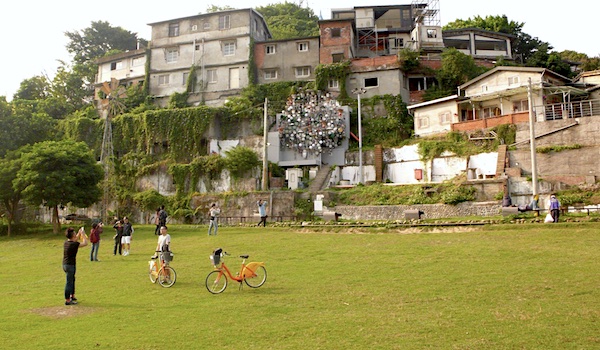Our lab has invited Dr. Igor Rogelja to deliver a lecture on urban regeneration of Treasure Hill in Taipei. The lecture is a part of Urban Regeneration and Social Sustainability, and Urban and Regional Sociology courses.
우리 연구실은 Igor Rogelja 박사를 초빙해 타이베이 Tressure Hill (寶藏巖)의 도시재생에 대한 강의를 듣고자 합니다. 이 강의는 도시재생과사회적지속가능성과 도시·지역사회학 수업의 일부로서 기획된 것입니다.
Igor is Lecturer in Global Politics at University College London. He was previously based at the Lau China Institute at King’s College London and completed his doctoral studies at SOAS, University of London, with a study on ‘creative city’ interventions in marginal urban spaces in China and Taiwan. He remains interested in the politics of space and is currently involved in several research projects examining the role of infrastructure and materials like coal and steel in global politics.
His lecture ‘Taipei’s ‘Treasure Hill’: from a marginal space to an outdoor museum’ will take place online on Friday, December 9th, 2022 (17:00-19:00). Following is the lecture’s summary:
‘Close to Taipei’s bustling university area, a small hill facing the Xindian River has been home to a small neighbourhood of illegally constructed houses that originally housed former military personnel that were evacuated to Taiwan after the Republic of China lost the civil war against the Communists. Existing on the margins of a developmental city, the small neighbourhood was meant to be demolished, but interventions by activists, the mobilisation of residents and input from experts transformed the once ‘illegal’ settlement into a hybrid social-creative project managed by the city’s cultural affairs bureau.
The transition was however not as smooth as the city’s version of the history suggests. This talk will outline the struggles and negotiations that led to the creation of this outdoor museum. Specifically it will explore why and how more radical visions of cohabitation between artist-activists and elderly veterans were sidelined in favour of a more top-down design that has been (somewhat inaccurately) denounced as ‘gentrification’ by Taiwan’s critical audience. The experience of Treasure Hill, while in some ways unique to Taipei, nevertheless presents a compelling case study that points at the limits of ‘creative redevelopment’ of marginal urban spaces.’

